
Keith Jarrett is an American pianist and composer. Jarrett started his career with Art Blakey and later moved on to play with Charles Lloyd and Miles Davis. Since the early 1970s, he has also been a group leader and solo performer in jazz, jazz fusion, and classical music. His improvisations draw from the traditions of jazz and other genres, including Western classical music, gospel, blues, and ethnic folk music.

Jack DeJohnette is an American jazz drummer, pianist, and composer.

In a Silent Way is a studio album by the American jazz trumpeter, composer, and bandleader Miles Davis, released on July 30, 1969, on Columbia Records. Produced by Teo Macero, the album was recorded in one session date on February 18, 1969, at CBS 30th Street Studio in New York City. Macero edited and arranged Davis's recordings from the session to produce the album. Marking the beginning of his "electric" period, In a Silent Way has been regarded by music writers as Davis's first fusion recording, following a stylistic shift toward the genre in his previous records and live performances.

Jack Johnson is a studio album and soundtrack by the American jazz trumpeter, composer, and bandleader Miles Davis. It was released on February 24, 1971, by Columbia Records.
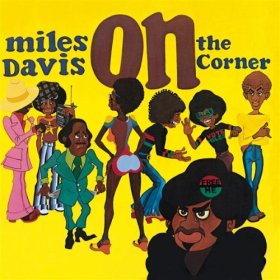
On the Corner is a studio album by the American jazz trumpeter, bandleader, and composer Miles Davis. It was recorded in June and July 1972 and released on October 11 of that year by Columbia Records. The album continued Davis' exploration of jazz fusion, and explicitly drew on the influence of funk musicians Sly Stone and James Brown, the experimental music of Karlheinz Stockhausen, the free jazz of Ornette Coleman, and the work of collaborator Paul Buckmaster.

Big Fun is an album by American jazz trumpeter Miles Davis. It was released by Columbia Records on April 19, 1974, and compiled recordings Davis had made in sessions between 1969 and 1972. It was advertised as a new album with "four new Miles Davis compositions" One of three Davis albums released in 1974 and largely ignored, it was reissued on August 1, 2000, by Columbia and Legacy Records with additional material, which led to a critical reevaluation.

The Man with the Horn is an album released by Miles Davis in 1981. It was Davis's first new studio album since 1972’s On the Corner, his first recordings of any kind since 1975 and his first activity following a six-year retirement. The album title references his 1952 10-inch LP Young Man with a Horn.

The Complete Bitches Brew Sessions is a four-disc box set by jazz trumpeter Miles Davis compiling recordings between August 19, 1969, and February 6, 1970—including the 1970 double album Bitches Brew in its entirety—and released on Columbia/Legacy on November 24, 1998.

Amandla is an album by jazz musician Miles Davis, released in 1989. The word Amandla holds significance in various Nguni languages, including Zulu and Xhosa, where it translates to "power." It is the third collaboration between Miles Davis and producer/bassist Marcus Miller, following their previous works Tutu (1986) and Music from Siesta (1987), and it serves as their final album together.
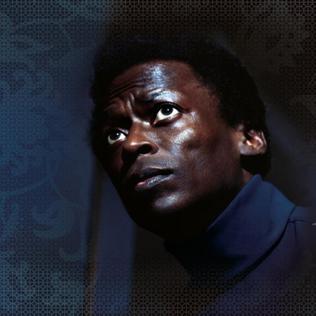
The Complete In a Silent Way Sessions is a three-disc box set by trumpeter Miles Davis released by Columbia/Legacy, featuring recordings from the sessions that would produce his 1969 album In a Silent Way as well as transitional pieces from the era. Beside two tracks previously released on the 1968 album Filles de Kilimanjaro, the set also includes material for the Columbia outtake compilations Water Babies, Circle in the Round, and Directions. The box set features previously unreleased music, mostly from the In a Silent Way sessions proper. The set includes essays by Michael Cuscuna and Bob Belden, along with details of the recording sessions. It is number five in the Legacy series of Miles Davis's Complete Sessions box sets.
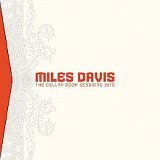
The Cellar Door Sessions 1970 is a boxed live album released in 2005. It compiles six of ten sets that were performed over four December nights in 1970 at the D. C. nightclub the Cellar Door. Despite similar formatting, it is not a part of the Miles Davis Series of box sets.

Circle in the Round is a 1979 compilation album by jazz musician Miles Davis. It compiled outtakes from sessions across fifteen years of Davis's career that, with one exception, had been previously unreleased. All of its tracks have since been made available on album reissues and box sets.
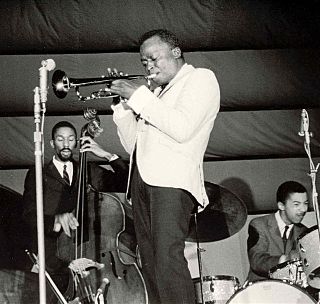
The Miles Davis Quintet was an American jazz band from 1955 to early 1969 led by Miles Davis. The quintet underwent frequent personnel changes toward its metamorphosis into a different ensemble in 1969. Most references pertain to two distinct and relatively stable bands: the First Great Quintet from 1955 to 1958, and the Second Great Quintet from late 1964 to early 1969, Davis being the only constant throughout.

In Concert is a live double album by the American jazz musician Miles Davis. It was recorded in 1972 at the Philharmonic Hall in New York City. Columbia Records' original release did not credit any personnel, recording date, or track listing, apart from the inner liner listing the two titles "Foot Fooler" and "Slickaphonics."
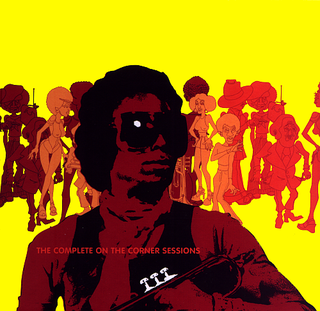
The Complete On the Corner Sessions is a posthumous box set by American jazz musician Miles Davis, released in the US on September 25, 2007, by Columbia Records and in the UK on September 29 on Legacy Recordings. Like other Davis box sets, the included material is taken from a wider chronology of sessions than the dates which actually produced the titular album. The Complete On the Corner Sessions compiles material from 1972 through 1975 which, due to lineup changes Davis made throughout the era, features over two dozen musicians.

Charlie Parker on Dial: The Complete Sessions is a 1993 four-disc box set collecting jazz saxophonist and composer Charlie Parker's 1940s recordings for Dial Records. The box set, released by the English label Spotlite Records, assembled into a single package the multi-volume compilation albums the label had released by Spotlite on vinyl in the 1970s under the series title Charlie Parker on Dial. The box set has been critically well received. In 1996, a different box set collecting Parker's work with Dial was assembled by Jazz Classics and released as Complete Charlie Parker on Dial.

The Complete Studio Recordings of The Miles Davis Quintet 1965–1968 is a box set of six CDs covering the work of Miles Davis and his critically acclaimed second great quintet which featured Wayne Shorter, Herbie Hancock, Ron Carter and Tony Williams.

The Essential Miles Davis is a 2-CD compilation album by Miles Davis released by Columbia Legacy on May 15, 2001. It belongs to Sony Music Entertainment's "The Essential" series, not to the series "Essentials", established by WEA International, and was released as part of Sony's Miles 75 Anniversary program. In 2008, The Essential Miles Davis 3.0 was released as a limited edition album featuring a bonus third disc that added five more songs to the original track list.

Directions is a compilation album by American jazz musician Miles Davis, released in 1981 by Columbia Records. It collects previously unreleased outtakes that Davis recorded between 1960 and 1970. Directions was the last of a series of compilation albums—mostly consisting of, at that time, previously unreleased music—that Columbia released to bridge Davis' recording hiatus that ended with the Man with the Horn in July 1981.

Miles Davis at Newport 1955–1975: The Bootleg Series Vol. 4 is a four-CD album compiling five of Miles Davis's performances at the Newport Jazz Festival in Newport, Rhode Island and two European concerts branded under the Festival moniker with one additional track recorded in New York City.




















